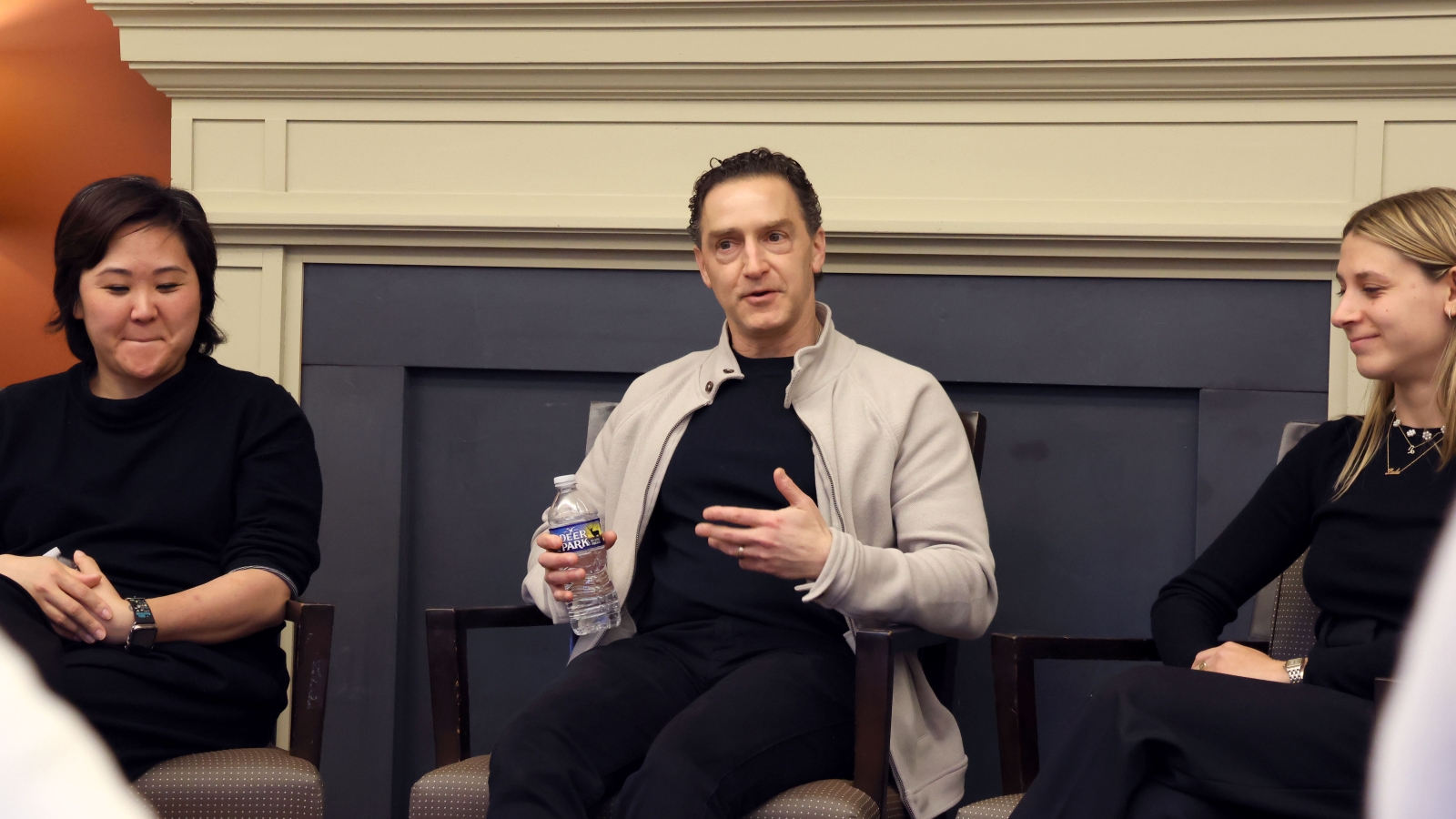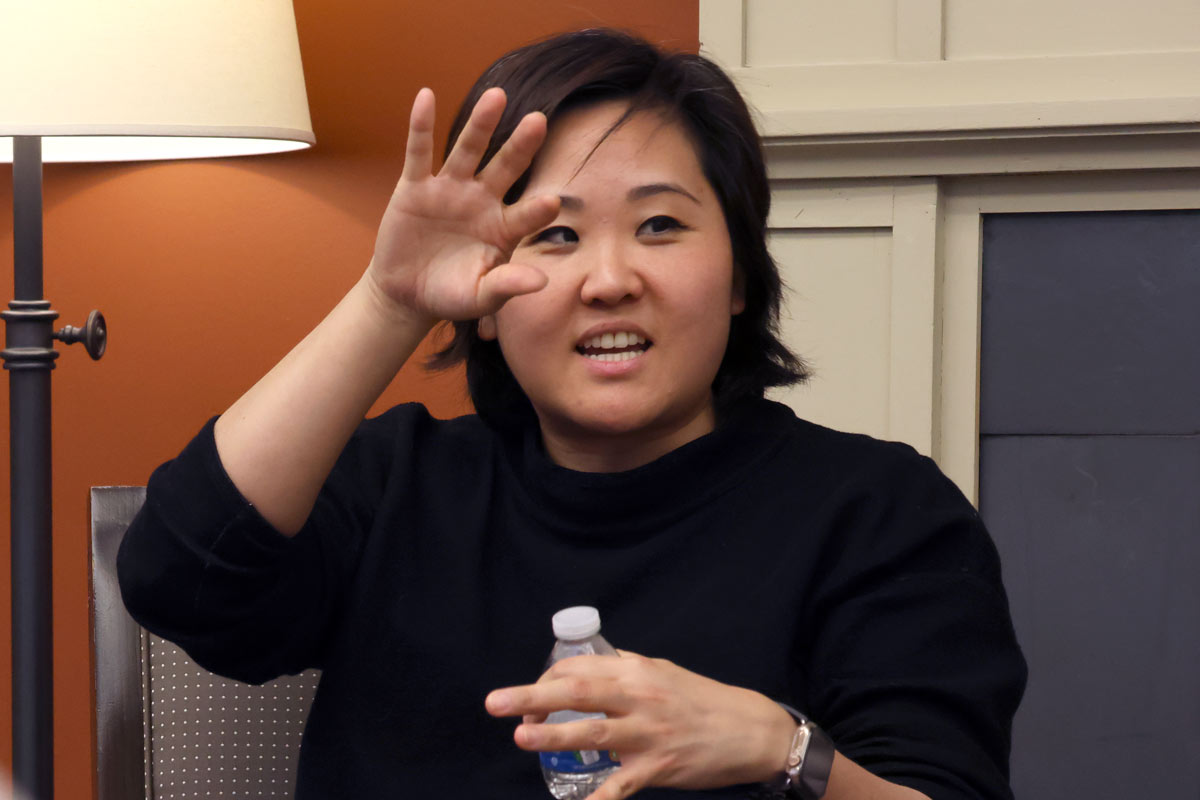From English Major to Doctor, Lawyer, VP
At a panel put on by the Department of English, three alums discussed their career trajectories and how study in the humanities led them there.

Vivian Lee, C’99, CGS’01, M’06, considers herself a Penn lifer, having done undergrad, medical school, and medical residency here before becoming an assistant professor of ophthalmology at the Perelman School of Medicine.
But her path wasn’t a straight line. “I didn’t decide on medicine until my senior year in undergrad,” she says. In fact, Lee majored in English, something she believes was critical to getting where she is today. “It really gives you a solid foundation in critical thinking, communication, being open-minded to other people’s ideas and opinions,” she says.

Vivian Lee, C’99, CGS’01, M’06, one of the panelists, is an assistant professor of ophthalmology at the Perelman School of Medicine. She believes being an English major was critical to getting where she is today.
This spring, she participated in a panel of alums who were all English majors. The discussion, put on by the Department of English, was aimed at showcasing the range of career paths available to this and other humanities majors. Lee was joined by Michael Smith, C’91, Vice President of Market Growth Strategy at Comcast, and Jessica “Lulu” Lipman, C’22, a student at Penn Carey Law School.
“The English Department was really formative in my education experience,” Lipman says. “Getting to talk with and hearing the experiences of Michael and Vivian, who are in such different professions from each other and from my future career, made it very clear how special an English degree can be. That was valuable to the undergrads there—and to me.”
Lipman had often kicked around the idea of pursuing a career in law. But a course she took her sophomore year with Nancy Bentley, Donald T. Regan Professor of English, sealed her trajectory. “Literature and Law is all about the role of narrative in the courtroom,” Lipman says. “I always thought it was a very black-and-white profession, but that class taught me how storytelling is a key aspect of the law. After that I knew I wanted to pursue litigation.”
She suspects the creative writing and improv acumen she honed at Penn will ultimately come in handy once she starts practicing law. “I love oral advocacy. I really want to be able to go to court and tell a client’s story,” she says. “Litigation is all about telling your client’s story and having it be the most persuasive one. I’ve always loved what a story can do.”

Jessica “Lulu” Lipman, C’22, another panelist, is a student at Penn Carey Law School. “The English Department was really formative in my education experience,” she says.
Of her undergrad experience at Penn, Lee says she came away with both “hard” skills—communication, negotiation, speaking articulately and with intention—and “soft” ones like empathy. “When I was a trainee working in a medical clinic, my English background was more valuable than I had anticipated,” she says. “In the clinic, you’re taking in a huge amount of information, the patient’s history, physical exam findings, and test results, and trying to distill it into an accurate picture of what’s going on with the patient.”
It was an exercise she did all the time as an English major: read a book, generate a hypothesis, determine what evidence exists and whether it’s enough to prove or negate said hypothesis. “Having that mindset was everything,” Lee adds. “As a clinician scientist today, it’s all I do. It’s all about communicating to my colleagues that this is an idea worth studying and here’s why and anticipating how people might poke holes into that hypothesis.”
She says she appreciated the chance in college to try—and fail—at many things as she figured out who she was, as opposed to what she sees as the pressure today for college students to remain laser-focused from the get-go. “You lose that luxury of just being a college student and feeling like you’re still going to be safe when you graduate even if you don’t have your life all in order. I for sure didn’t have my life in order.”
“I wish the pendulum could swing back a bit,” she adds. “I had the best undergraduate experience.”
In many ways, that was what the panel had intended to convey: the benefits and joys of majoring in English. “It gives you skills that equip you well to go into all different industries,” Lipman says. “Having a law student, a doctor, someone in the corporate world just shows you everything you can do with a degree in English.”


